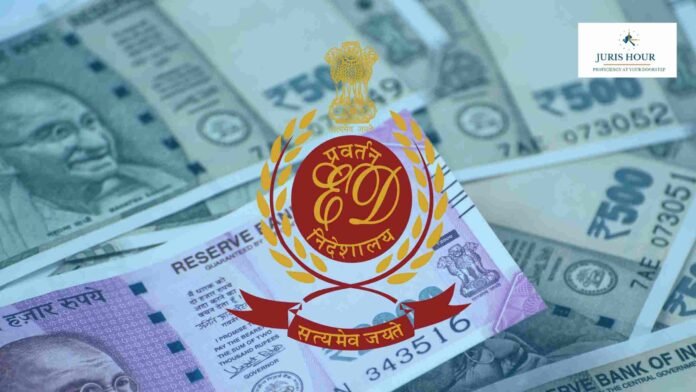The Delhi High Court has held that a coal block allocation constitutes “property”, and any financial gains derived from its misuse can be treated as “proceeds of crime” under Prevention of Money Laundering Act (PMLA).
The Bench of Justice Anil Kshetarpal and Justice Harish Vaidyanathan Shankar allowed the ED’s appeals against the 2022 Single Judge ruling that had quashed the agency’s provisional attachment order (PAO) worth ₹227 crore issued against Hi-Tech Mercantile India Pvt Ltd and Prakash Industries Ltd in connection with the Chotia Coal Block allocation.
The case stemmed from allegations that Prakash Industries Ltd (PIL) fraudulently secured the Chotia Coal Block in 2003 by submitting false and forged documents. Following the Supreme Court’s 2014 decision in Manohar Lal Sharma v. Union of India, which cancelled all coal block allocations, the ED initiated proceedings under PMLA in 2017.
In December 2021, the ED issued a Provisional Attachment Order attaching assets worth ₹227 crore, treating the coal extracted between 2006–2015 (valued at ₹951 crore) as proceeds of crime.
However, a Single Judge Bench had quashed the attachment in 2022, ruling that a coal block allocation is not propertyunder the PMLA and that no proceeds of crime existed as of the date of allocation.
Reversing the Single Judge’s decision, the Division Bench held that the appeal was maintainable, as the Single Judge exercised jurisdiction under Article 226. The coal block allocation letter is “property” under Section 2(1)(v) of the PMLA, as it confers an intangible commercial right. Misrepresentation and fraudulent procurement of the allocation, leading to illegal coal extraction, constitute a money-laundering process under Section 3. The attached assets represent the value of proceeds of crime derived through illegal means.
The Bench observed that the Single Judge had posed an incorrect legal question, and clarified that even if the allocation itself was not proceeds of crime, its utilization resulting in financial gain would attract the PMLA.
The ED, represented by Special Counsel Zoheb Hossain, had argued that the Single Judge “misdirected the inquiry,” focusing only on the allocation and ignoring subsequent extraction and profits. The Court agreed, holding that the allocation served as the instrument enabling the laundering process.
Senior Advocates Kapil Sibal and Dayan Krishnan, for the respondents, argued that the allocation stood cancelled and that PIL had already paid ₹249 crore as a compensatory levy imposed by the Supreme Court. The Bench, however, clarified that such payment “does not extinguish criminal liability” arising from the generation of illicit proceeds.
The Court set aside the 2022 Single Judge ruling, reinstating the ED’s attachment orders.
Case Details
Case Title: ED Versus Hi-Tech Mercantile India
Case No.: LPA 588/2022
Date: 17.10.2025
Counsel For Petitioner: Zoheb Hossain, Spl Counsel for ED
Counsel For Respondent: Dayan Krishnan, Sr. Adv.
Read More: Delhi HC Condones 3621-Day Delay, Allows Son to Pursue Late Father’s Appeal in FERA Case

